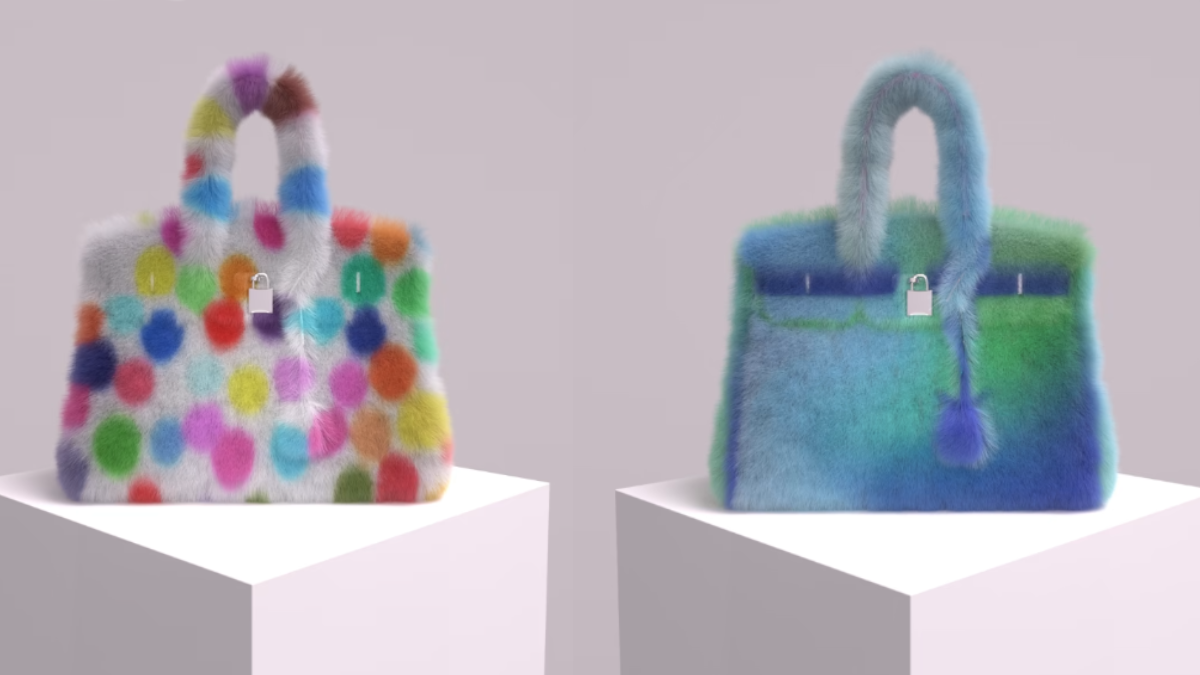The trial between Hermès and NFT artist Mason Rothchild has come to an end. After three days of deliberation, Rothchild, the artist behind the MetaBirkins NFTs, was found liable for trademark infringement, dilution, and unlawful cybersquatting. Additionally, the court ruled that the MetaBirkin NFTs are not protected under the first amendment.
Rothchild’s MetaBirkins NFT collection, which refers to Hermès signature Birkin handbag in its name, hit the public in December 2021. The series includes 100 digital furry purses. Hermès sent Rothchild a cease-and-desist order o December 16, 2021. However, before OpenSea and other NFT marketplaces removed the MetaBirkin listings, the collection earned over $1 million.
“I am not creating or selling fake Birkin bags. I’ve made artworks that depict imaginary, fur-covered Birkin bags,” Rothchild stated on Twitter. “The fact that I sell the art using NFTs doesn’t change the fact that it’s art.”
Hermès filed a trademark lawsuit against the MetaBirkins creator on January 14, 2022, arguing that the NFT line may confuse the luxury brand’s customers. The company also claims Rothchild’s collection is harmful to its brand.
Rothchild sought to back up his case by referring to a letter Andy Warhol received from the Campbell Soup Company praising his art piece featuring a can of the brand’s soup.
Lawyer Oren Warshavsky argued on behalf of Hermes that by using the Birkin name, Rothchild was diluting the trademark. In addition, Warshavsky alleges that the MetaBirkins NFTs only sold so well because of the name.
“MetaBirkins sold at the amount they did because of the Birkin name,” says Warshavsky. “People spent that money because of the name MetaBirkin, regardless of which NFT they were getting.”
How MetaBirkins Effects the Future of NFTs
This case may set a precedent for future NFT disputes. Now that Rothchild has lost his case, NFT creators may want to be more careful with how they approach content under trademark or copyright.
“This case is one of the first and arguably the most prominent lawsuits to ever focus on trademarks and NFTs and whether trademark rights extend to the digital sphere,” senior counselor at Greenspoon Marder LLP, Gai Sher told CoinDesk. “This case could very well set a legal precedent not only for trademarks in the context of NFTs, but for all digital assets as they relate to fair use and free speech.”
“The increasing innovation around virtual products in connection with metaverse technologies will require further analysis that the courts have not yet addressed,” She adds. “It will be interesting to see how courts will analyze trademark infringement claims in the context of virtual functional NFTs and how this in turn will affect brands’ decisions to launch functional NFTs in the virtual space.”
Jack Brassell is a freelance journalist and aspiring novelist. Jack is a self-proclaimed nerd with a lifelong passion for storytelling. As an author, Jack writes mostly horror and young adult fantasy. Also an avid gamer, she works as the lead news editor at Hardcore Droid. When she isn't writing or playing games, she can often be found binge-watching Parks & Rec or The Office, proudly considering herself to be a cross between Leslie Knope and Pam Beasley.



































